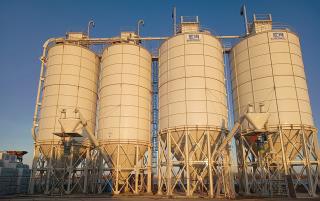In this article, Peter Anderson reflects on his role as a General Manager of a cement plant in China, and the steps he took to establish an effective health and safety programme. Unconventional and even controversial, this article brings an original perspective to one of the most challenging and important roles of the cement plant manager, especially those operating in developing markets.
In early 2001 I found myself as the general manager of a greenfield cement plant situated near Tianjin in north-eastern China. One of my priorities was to establish an effective health and safety regime in the context of a small industrial facility of 100 people.
Even in 2001, I was aware that China achieved an average life expectancy of over 70 years, close to that of the most developed economies, while GDP per capita was around US$2000. I was, therefore, confident of eventually exceeding best-in-class safety performance worldwide, but wasn’t sure how – except that it would require a revision of much received wisdom.
I’ve grouped my observations around some of Professor W Edwards Deming’s “14 rules” which formed the basis of his 1980s' seminars on Quality, Productivity and Competitive position. I was lucky enough to be one his pupils, and he’s still worth reading in the original.
Deming Rule No.1
Create constancy of purpose
This is difficult in a plant environment where a hundred things go wrong every day. Try to figure out the worst that can happen, try to prepare for it, then try and relax and concentrate on working for the best.
My “first day” agenda on a new plant always includes looking at how quickly workers can get sewn back up after losing a fight with a large machine. This identified a number of problems, including ambulance reaction time and the proximity of specialist A&E services for burns and eye trauma. I also learned that there could be long delays in getting treatment while insurance was checked, so I deposited wads of cash up front at the two hospitals most likely to be used. This issue is a very local one in China, and evolving fast, but I would recommend attention be paid to it, particularly the availability of plastic surgery and limb reattachment. Chinese medical care is first rate, but it’s a big country and you can’t assume your workers will always get the level of treatment they need locally. You may need to set up mercy flight insurance.
